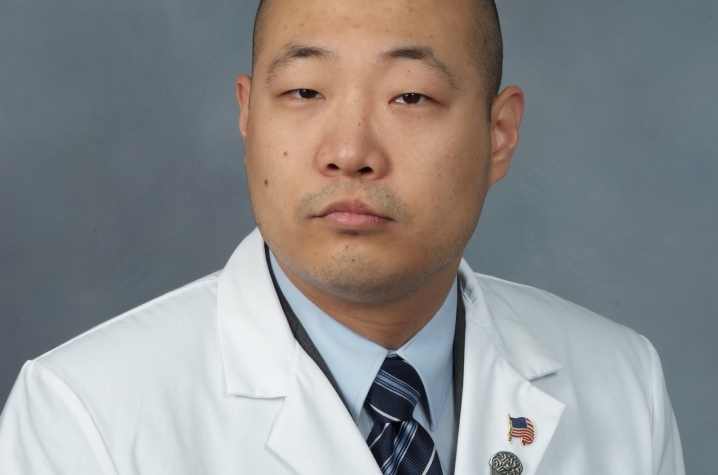Concussion Care for Young Athletes

LEXINGTON, Ky. (Oct. 6, 2011) - The following column appeared in the Lexington Herald-Leader on Sunday, October 2.
Concussion Care for Young Athletes
By Dr. Dan Han
At UK HealthCare, we treat many young athletes who have experienced a concussion during practice or play. The following are some of the most frequently asked questions about concussions and treatment.
What is a concussion?
A concussion is a mild traumatic brain injury (TBI) that causes a decline in brain functioning. It can be caused by a direct or indirect blow to the head. The brain floats in a water-like substance called cerebrospinal fluid. During strong impact, this fluid may not be enough to “cushion” the brain, causing it to bounce inside of the skull. This is called a coup contrecoup injury.
All athletes who play contact sports are at risk for a concussion. Football is the first sport that usually comes to mind, but athletes involved in soccer, hockey, basketball, baseball, tennis, wrestling, mixed martial arts, and cheerleading are also at risk. Many solo athletes, such as gymnasts, figure skaters, skiers and cyclists, are also at risk.
The CDC reports that an estimated 1.7 million traumatic brain injuries occur each year. Of these, approximately 75 percent are concussions, with sports-related concussions accounting for about 300,000 of those cases. In addition, sports concussions are the second-leading cause of TBIs for people ages 15-24, after motor vehicle accidents
What are the symptoms of a concussion?
A concussion can cause physical, mental and emotional issues. Initial symptoms include headaches, nausea, blurry vision, dizziness and balance problems. Patients may notice a stronger sensitivity to light or noise. Patients also report fatigue, mood changes or a decline in their attention span and/or memory and sleeping problems.
Everyone involved with a sports team — coaches, parents, school administrators and nurses — should learn to recognize the signs of a concussion. Athletes — or anyone — who experience these symptoms after a blow to the head should be evaluated by a physician immediately.
How is a concussion treated?
The good news: most concussions heal themselves with time, often in just a few days to a few weeks. Athletes who have experienced a concussion should be pulled from practice or play and get plenty of rest, until their physician allows them to return to the sport. The treatment team can track recovery over time to make this decision.
It is not uncommon for a patient to develop post-concussive syndrome. In this case, the quality of daily life can be impacted. For example, a lack of concentration or memory loss could lead to a student athlete losing a scholarship or a job. Until the brain heals, these patients need a physician-guided treatment plan to help them deal with the symptoms.
Concussion care at UK
The UK Multidisciplinary Concussion Program evaluates sports-related head injury and provides preseason baseline evaluations for athletes. UK utilizes the Immediate Post-concussion Assessment and Cognitive Testing (including the national standard called the ImPACT program) to assess an athlete’s attention, memory, reaction time, and processing speed in the context of past functioning and history of concussions. The UK Multidisciplinary Concussion Program is one of the largest interdepartmental and multidisciplinary closed-head injury program in the region.
Dr. Dan Han is an assistant professor of neurology and the director of the UK Multidisciplinary Concussion Program.




